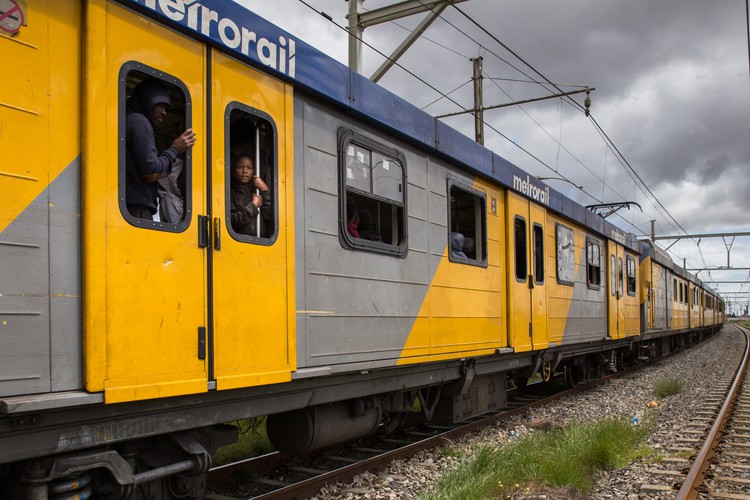

The United National Transport Union has taken the Passenger Rail Agency of South Africa to court to demand better security for train drivers and guards. Archive photo: Ashraf Hendricks
31 October 2017
The safety of railway workers is not the responsibility of the police, the South African Police Service (SAPS) has said in papers before the Western Cape High Court.
The United National Transport Union (UNTU) has taken the Passenger Rail Agency of South Africa (PRASA) to court to demand better security for train drivers and guards. On 31 May, UNTU filed a notice of motion against PRASA and the Minister of Transport at the Western Cape High Court, claiming that PRASA was not doing enough to protect its employees. The union has since asked for SAPS to be joined in the court process. SAPS is opposing this on the grounds that the safety of railway workers is a matter between PRASA and its employees and does not concern SAPS.
In its affidavit, PRASA said it relied heavily on SAPS’s Rapid Rail Police Unit (RRPU) and the police.
“What PRASA desperately needs is police visibility,” wrote Richard Walker, PRASA Western Cape Regional Manager. But, he said, it was evident from the weekly meetings with SAPS that “the police have taken the decision to play more of a supportive, rather than visibly active, role”.
In SAPS’ responding affidavit, handed to UNTU and the High Court on 23 October, Melville Cloete, Section Head of SAPS Operational Legal Services, said it was not SAPS’ responsibility to protect railway staff and control access to stations.
He said this would be an “unlawful extension” of SAPS duties.
“The RRPU does not exist to … safeguard the employees of PRASA. The RRPU is there to further the general duty that SAPS has to the public at large, in these circumstances that would be the rail commuters”, said Cloete.
But Walker said PRASA’s primary business was the transport of commuters and therefore “it is more than reasonable to rely on SAPS to provide the bulk of the security required”.
“Between June 2016 and January 2017 there were at least 12 incidents of crime affecting train drivers and train guards, including an incident of murder and one attempted rape”, wrote Steve Harris, general secretary of UNTU in his affidavit.
He described the case of train driver Nomveliso Brookwe who was robbed while she was being escorted by seven security guards when her train broke down between Khayelitsha and Nonqubela stations in January this year. He said none of the guards were armed.
Harris said she had told him that “working on the Central Line is like working with a sword hanging over your head”.
Train driver Pieter Botha had been robbed and shot dead at Netreg station in July 2016.
According to UNTU, it represents 6,598 train drivers and metro guards, and is the majority union.
UNTU wants PRASA to take urgent steps to protect railway staff by: establishing an armed mobile reaction unit station at Netreg, Mitchells Plain and Chris Hani stations; employing armed guards to accompany train drivers and guards; and improving access control in crime hotspot areas like Netreg, Langa, Philippi, Kapteinsklip and Chris Hani stations.
However, both PRASA and SAPS argue that these measures have already been implemented. Walker said PRASA had sent 56 private security armed guards to the crime hotspot areas to escort and protect train drivers and train guards, protect technicians in high risk areas, protect employees, act as a “force multiplier” during crowd control and escort early, off-peak or late trains.
At the Bonteheuwel Split, which is considered the most dangerous area, Walker said eight people and three motorcycles had been deployed. He also said PRASA had deployed armed security guards on more than 90% of the train sets operating in the central area.
He acknowledged that there was a security problem on the Central Line but argued that PRASA had done everything reasonably possible to improve the security.
Walker also said concrete walls would be put up between Langa and Bonteheuwel, Bonteheuwel and Lavistown, Lavistown and Belhar, Bonteheuwel and Netreg, Netreg and Heideveld, Heideveld and Nyanga and Nyanga and Philippi, at a total cost of R44.8 million.
“PRASA cannot be held accountable for incidents which take place despite the fact that it has taken those reasonable and practical steps within its powers, which it clearly has done”, said Walker.
A date has not yet been set for the hearing.